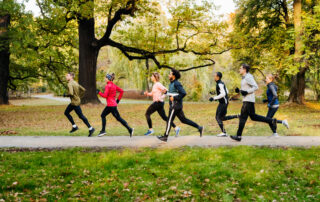Being consistently physically active in adulthood linked to 30–40% lower risk of death
But upping physical activity level still linked to 20–25% lower risk of death from any cause Switching to a more active lifestyle at any point in adulthood may extend lifespan Being consistently physically active in adulthood is linked to a 30–40% lower risk of death from any cause in later ...









